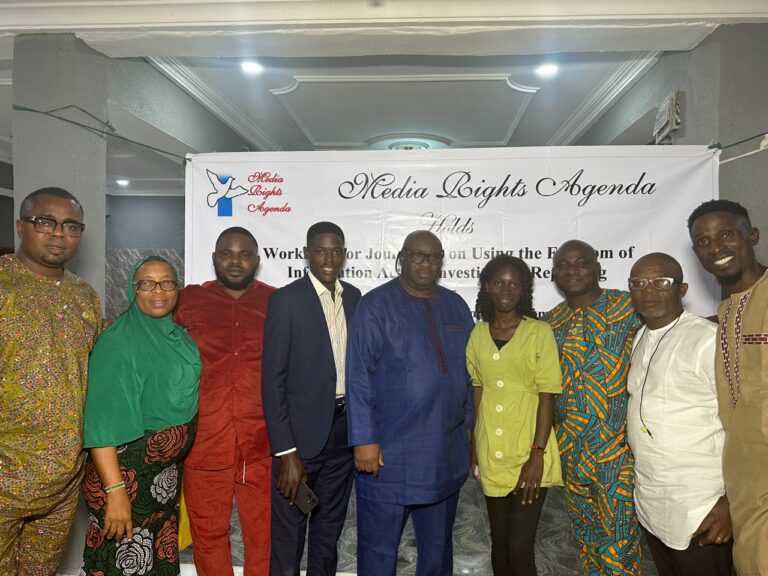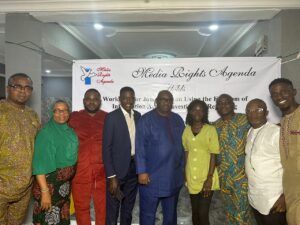Participants, made up of media professionals from broadcast, print, and online media organizations from different states across the south-west geo-political zone of Nigeria, have urged media stakeholders to devote more time, effort, and resources to creating awareness about the Freedom of Information (FOI) Act and building their capacity to utilize the Law.
The participants made this and other recommendations at a two-day workshop for journalists on how to use the FOI Act for investigative reporting, held by Media Rights Agenda with support from the MacArthur Foundation through the Wole Soyinka Centre for Investigative Journalism (WSCIJ) under the Collaborative Media Engagement for Development, Inclusion and Accountability (CMEDIA) Project, a multi-level intervention that supports media independence, improved transparency, accountability, and good governance in state and local governments with more public awareness on the need for accountability, and amplified marginalised voices.
The workshop which took place in Ibadan on October 31 and November 1, 2023 was aimed at familiarising the participants with the FOI Act and its provisions as well as to build their capacity to deploy it effectively as a tool for gathering information and evidence from public institutions and other entities covered by the Act, which they require in the course of conducting investigative reporting. It was also meant to equip them with the knowledge and skills they require to conduct in-depth, factual and accurate reporting on various subjects while minimizing the risks associated with gathering information and evidence through other traditional journalistic methods.
The event had in attendance 30 participants drawn from media professionals from broadcast, print and online media organizations from different states across the south-west geo-political of the country.
Sessions at the workshop comprised of plenary presentations and break-out sessions, which addressed different topics including: an Overview and Elements of Investigative Reporting; The Role of Records and Documents in Investigative Reporting; Understanding the Freedom of Information Act, 2011; The FOI Act and Investigative Reporting; and How Journalists and the Media Can Use the FOI Act.
Other topics treated are: Fact-checking and Investigative Reporting; Making Requests for Information Under the Freedom of Information Act; Deciding What Investigative Reports to Carry Out; Interviews in Investigative Reporting; and How to Present Stories from Investigative Reporting.
The workshop highlighted the importance of the FOI Act in empowering investigative journalists to access crucial information in the custody of public institutions and other non-governmental entities to which the Act applies.
The participants also recommended that media stakeholders put more effort and resources into providing continuous training for journalists in other areas such as investigative reporting techniques, fact-checking and information verification tools and approaches as well as the use of artificial intelligence and other emerging technologies which can aid their work, to engender better and more impactful reporting of various issues, particularly those relating to transparency, accountability, good governance and development.
The workshop concluded that journalists have a responsibility to prioritize issues affecting marginalized groups, especially women, adding that news stories should routinely include women and other marginalized groups as important sources of information. Additionally, the communiqué urged journalists to focus on how government policies, programmes, and actions impact these groups. Please download and read the full communiqué here.







